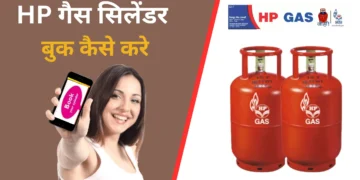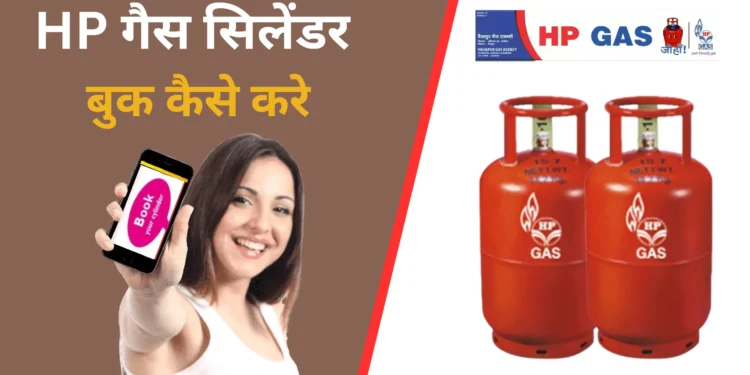Managing LPG cylinders effectively is crucial for both safety and efficiency in residential and industrial settings. At My HP Gas, we believe that understanding best practices in LPG cylinder management can lead to safer usage and greater peace of mind. This comprehensive guide covers essential practices to ensure the safe and efficient management of LPG cylinders in your home and workplace.
Understanding LPG Cylinders
LPG is a flammable hydrocarbon gas used primarily for heating, cooking, and powering vehicles. LPG cylinders come in various sizes, commonly ranging from 14.2 kg for residential use to larger sizes for commercial purposes. The design of these cylinders is intended to withstand high pressure, but improper handling can lead to hazards.
Proper Storage
Location: Store LPG cylinders in a well-ventilated area, away from direct sunlight and heat sources. Avoid areas like basements or enclosed spaces where gas can accumulate in case of a leak.
Orientation: Always store cylinders upright to prevent the release of gas from the safety valve. Ensure that the cylinder is stable and secured to prevent it from falling.
Distance from Flammable Materials: Keep cylinders at a safe distance from flammable materials and open flames. A minimum distance of 10 feet is generally recommended.
Inspection and Maintenance
Regular Checks: Conduct regular inspections of the cylinders and their fittings. Look for signs of rust, corrosion, or leaks. Ensure that valves are functioning properly and that seals are intact.
Weight Monitoring: Regularly monitor the weight of the cylinder to know when it’s time to book an LPG cylinder refill. Knowing the approximate usage can help you anticipate when to order more gas.
Professional Servicing: Schedule periodic professional inspections of your cylinders and equipment to ensure everything is functioning correctly. This is especially important for industrial setups where larger cylinders are in use.
Safe Handling Practices
Training: Ensure that anyone handling LPG cylinders, whether at home or in an industrial setting, is trained in proper safety protocols. This includes knowing how to manage leaks and operate valves safely.
Avoiding Damage: Handle cylinders with care to avoid damaging the cylinder or its fittings. Do not drop or roll the cylinders and always use proper equipment when moving heavy cylinders.
Protective Gear: When handling LPG cylinders, especially in industrial environments, wear appropriate protective gear, including gloves and goggles.
Connecting and Disconnecting
Use Proper Tools: When connecting or disconnecting the cylinder, use the appropriate tools to ensure a tight seal. A wrench may be necessary for certain fittings.
Check for Leaks: After connecting a cylinder, check for leaks using a soapy water solution. If bubbles form, there is a leak that needs to be addressed immediately.
Never Use Flames: Never use an open flame to check for leaks. Instead, rely on the soapy water method, which is much safer.
Emergency Preparedness
Emergency Plan: Develop an emergency response plan that includes procedures for dealing with leaks, fires, and other potential hazards related to LPG. Ensure all household or workplace members are aware of this plan.
Fire Extinguishers: Equip your home or workplace with appropriate fire extinguishers. Ensure that everyone knows where they are located and how to use them.
Emergency Contacts: Keep a list of emergency contacts, including your LPG supplier and local fire department. In case of an emergency, knowing whom to call can save valuable time.
Booking LPG Cylinder Refills
Regular Refills: To avoid running out of gas, establish a regular schedule for booking LPG cylinder refills. Monitor your usage patterns to anticipate when you’ll need a refill.
Using Online Services: Many suppliers, including My HP Gas, offer online booking services for convenience. This can save time and ensure that you receive your refill promptly.
Be Aware of Delivery Times: When booking an LPG cylinder refill, be mindful of delivery times and plan accordingly to ensure you have enough gas for your needs.
Disposal and Recycling
Old Cylinders: When a cylinder reaches the end of its life, follow local regulations for disposal. Do not attempt to dispose of it yourself; always contact your supplier for guidance.
Recycling: Many suppliers have programs for recycling old cylinders. Inquire with your provider about their recycling policies to ensure you’re disposing of your cylinder responsibly.
Conclusion
Effective LPG cylinder management is essential for safety and efficiency in both home and industrial settings. By adhering to these best practices, you can minimize risks and ensure the safe use of LPG in your daily activities. Remember to regularly monitor your usage and be proactive in booking LPG cylinder refills through reliable services like My HP Gas. With the right knowledge and precautions, you can enjoy the benefits of LPG safely and efficiently.























































